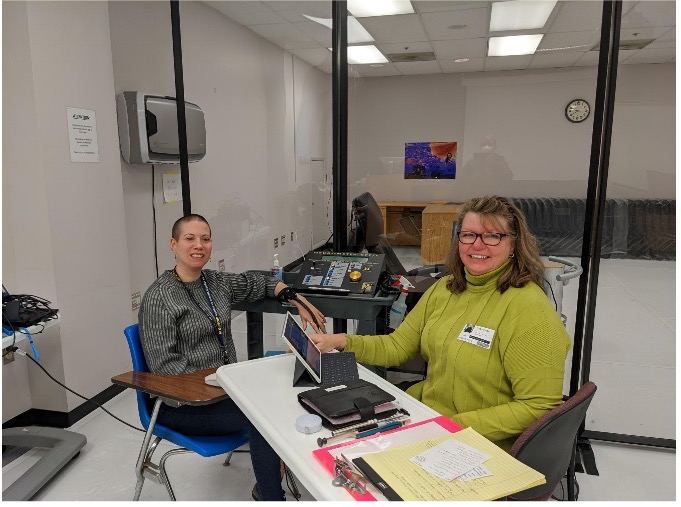 Lori Schirle, PhD, CRNA, is an Assistant Professor at VUSN. Her research aims at understanding how to best achieve effective pain management in surgical populations, while minimizing the risk of opioids. Currently, Schirle is investigating how a person’s underlying pain sensitivity influences their opioid use after total knee replacement. “Everyone has an underlying pain sensitivity,” states Schirle, “and this is highly variable among people. We’ve all known people who are sensitive to the smallest stimuli (think Princess and the Pea), and others who are hardly bothered by (what we might consider) big injuries.” This variation, according to Schirle, is largely driven by genetics. Through the measuring of pain sensitivity and genetics before and after knee replacement, Schirle and her team are trying to determine if underlying pain sensitivity can explain opioid use after surgery. Can genetic differences also explain these pain sensitivity variances? That’s what she’s trying to find out.
Lori Schirle, PhD, CRNA, is an Assistant Professor at VUSN. Her research aims at understanding how to best achieve effective pain management in surgical populations, while minimizing the risk of opioids. Currently, Schirle is investigating how a person’s underlying pain sensitivity influences their opioid use after total knee replacement. “Everyone has an underlying pain sensitivity,” states Schirle, “and this is highly variable among people. We’ve all known people who are sensitive to the smallest stimuli (think Princess and the Pea), and others who are hardly bothered by (what we might consider) big injuries.” This variation, according to Schirle, is largely driven by genetics. Through the measuring of pain sensitivity and genetics before and after knee replacement, Schirle and her team are trying to determine if underlying pain sensitivity can explain opioid use after surgery. Can genetic differences also explain these pain sensitivity variances? That’s what she’s trying to find out.
The U.S. is currently in an Opioid Overdose Epidemic that can be traced to the 1990s, when a rise in opioid prescriptions began to occur.1 Schirle explained that “nearly all patients take opioids after surgery, but some patients take opioids long after the surgical pain is believed to have ended.” As recent as 2017, the U.S. saw 191 million opioid prescriptions.2 Between 2019 and 2020, deaths related to prescription opioids increased by 17%.1 “The longer opioids are used, the higher a person’s risk of opioid use disorders, including overdose,” Schirle states. One of the side effects of opioids that can lead to an accidental overdose is the buildup of tolerance.2 The best way to reverse this epidemic? Change the way we handle patient’s pain management. “If we had a way to predict who will have prolonged pain and opioid use after surgery, we could use additional methods to help treat pain to decrease risk of prolonged opioids, or tailor alternative methods of pain management that better managed their particular pain.”

While Schirle and her team are early in the study, they have already heard from several patients that the opioids they were prescribed were not effective for them, which brings into question “if opioids are the best way to treat pain after knee replacement for all patients,” says Schirle. They have also heard from almost all participants that they are grateful for having the opportunity to discuss their pain, both before and after surgery, and happy to learn there are methods to measure a person’s pain sensitivity. While it has been 8 years since the opioid epidemic was listed as a Public Health Emergency in the U.S.,3 and although strides were made on treating people with opioid addictions, “we still have a long way to go to prevent opioid use disorders from occurring. I feel my research is on the prevention side of the equation. Next steps for this research are to find better ways of managing pain for individuals who have genetic variants that influence postoperative pain and decrease opioid response,” states Schirle.
Schirle would like to acknowledge that she has been fortunate to have NIH funding for her research through a National Institute of Nursing Research K23, and seed funding through the Vanderbilt University Seeding Success Program. Her clinical research could not take place without a dedicated team, and “I could not do it without the hard work of VUSN Research Assistant, Samantha Swift, and the help of my Mentoring Team: Drs. Mariann Piano, Nancy Cox, and Susan Dorsey from the University of Maryland Pain and Translational Symptom Science Center,” concludes Schirle.
1 https://www.cdc.gov/opioids/basics/epidemic.html